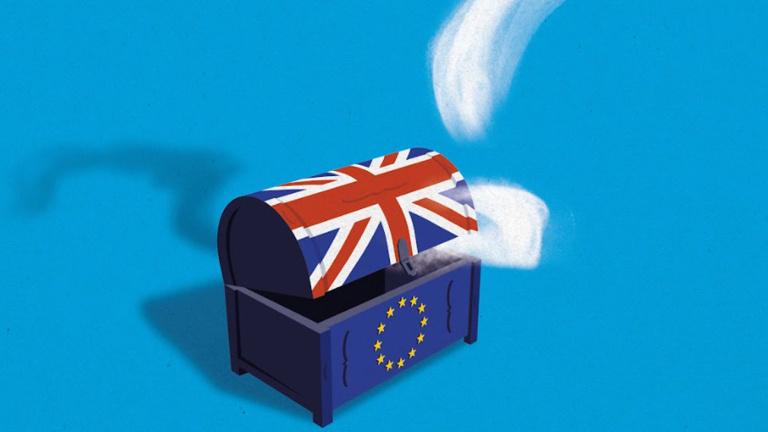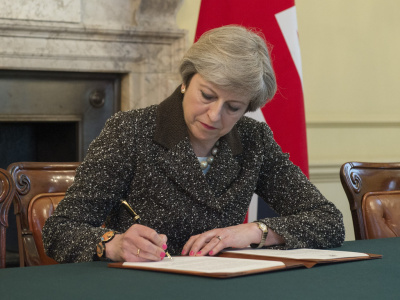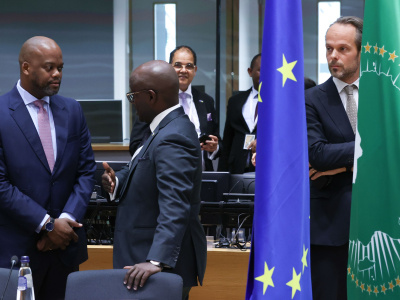
The impact of Brexit on aid: Divorce or marriage of convenience?
Brexit will certainly impact EU development cooperation and humanitarian assistance policies. A main question is whether these two parties will continue to collaborate in development cooperation post-Brexit. The UK is a ‘development superpower’ in its own right, as well as the third contributor (after Germany and France) to the EU’s aid budget. As for the EU, it channels more than half of the world’s ODA annually, something that constitutes a key political asset of the Union in its external relations.
What does Brexit mean in terms of aid?
Two related but distinct political events make it difficult to foresee the effects of Brexit on aid. One is the conservative slant evident in British domestic politics. The other is the Brexit itself. In Olivié and Pérez (2017) we proposed three potential post-2020 scenarios, depending on how the UK’s aid budget and its geographical allocations evolve (Table 1).

Following Theresa May’s narrative on ‘a truly Global Britain’, the UK seems unlikely to cut aid spending. Moreover, given the need to strengthen extra-European links, the British may opt to increase international assistance, to nurture political links with the Commonwealth and the international community. Aid cuts would take place only if Brexit plunges the island into a nationalist retrenchment.
Either in the framework of a nationalist retrenchment, or in a scenario where the country seeks new linkages, aid previously channelled via EU institutions will be moulded according to current British bilateral aid patterns. Economic infrastructure will probably be more targeted than, for instance, social sectors like health and education. However, it could be in Britain’s best interest to maintain a bridge with the EU in development cooperation affairs. In that case, part of UK aid could be channelled as in the other two depicted scenarios, while the rest would retain the EU aid pattern.
World aid would only decrease, after Brexit, in the event of a nationalist retrenchment in the UK. And such decrease would be limited to 3% of total aid on average, though impacts would obviously not be evenly distributed among aid recipients (see Olivié and Pérez, 2017). Brexit will have a major impact on the EU as a global donor. The Union would lose 21-22% of current aid disbursements, meaning that its share of world aid could fall from 58% (according to 2015 figures) to 48% or 47%. The EU would maintain its top position and the EU institutions would still be ranked fourth in aid volume (Table 2).

Although Brexit negotiations still have a long way to go and political events could unfold in unexpected ways, almost two years have passed since May and her Brexiteer administration took power. Despite a strong campaign against aid, which appears to be a continuation of the Brexit campaign prior to the referendum, UK politicians have given no sign of abolishing the ring-fenced 0.7% commitment. Preliminary data recently released by the OECD show that the UK has even increased its aid by 2.1%. The nationalist retrenchment scenario is thus proving less likely (OECD, 2018).
Does the UK want to collaborate with the EU after Brexit?
Continued collaboration with the EU on development assistance could be in the UK’s best interest (see also the editors’ choice matrix in this volume). First, the UK is bound by law to spend 0.7% of its national income on ODA. That commitment requires a developed administrative and political infrastructure. Reallocation of aid funds to other pre-existing mechanisms or building new ones might prove easier said than done. Secondly, the UK has maintained a moral and political leadership position in the building of European development policy. It has strongly influenced the political, geographical, and sectoral components of EU aid. As a result, EU institutions (which also cannot be reshaped overnight) are an ideal channel for pursuing British aid objectives. Thirdly, keeping connected with the EU is a way to maintain a link with areas and countries where the UK might not have the possibility or interest in a presence of its own. A fourth reason is a potential fear that British charities may lose access to EU funding after Brexit.
On the other side of the argument, some may say that Brexit means Brexit, and the UK interest is to devote the resources currently channelled via the EU to strengthening its links with partner countries and multilateral organisations. Moreover, due to the loss of value of the British pound additional resources may be required to maintain current aid projects.
From the perspective of the UK government, the pros probably outweigh the cons. It recently stated, ‘The EU will remain one of the largest development actors in the world, and the UK wants to retain a close partnership with the EU in the future.’ This view was expressed in a non-paper shared with member states at an EU Foreign Affairs Council on Development earlier this year. In ‘The EU Beyond 2020, Future Development Instruments: A UK Perspective’, the UK calls for flexibility on the part of the EU when designing the post-2020 development cooperation financial tools so that non-member states can join and play a proactive role (De Groof, 2018).
Does the (rest of the) EU want to collaborate with the UK after Brexit?
A year ago, most of the relevant actors in EU development policy were in the process of absorbing the loss of the Union’s most influential and powerful donor. By now, stakeholders within the EU have developed different positions when it comes to the benefits of cooperating with the UK post-Brexit, post-Cotonou, and post-multiannual financial framework (MFF).
Regarding the incentives for keeping the UK on board, firstly, there is the obvious financial motive. The EU will lose a 10-11% of share of world aid if the UK leaves the Union. Recovering part of that share is a natural objective for the European Commission, which will probably pressure member states to renew and strengthen their commitment to development (and to EU external relations generally, as the recent proposal for the next MFF suggests). Under these circumstances, small or reluctant EU donors might prefer to leave the door open to a major donor external to the EU. Secondly, and reiterating an argument of ECDPM’s Andrew Sherriff, unlike some other policies, development is not a competitive affair in the traditional sense; it is preferable to have more countries and stakeholders on board (and not the contrary). It will be easier to work towards the development targets of the 2030 Agenda with big donors on the same team.
Yet, keeping the UK away from the table might be a way to achieve ‘more Europe’ in the development arena. The UK has exerted a strong influence in the design of European development policy, but it has not always been open to influence itself. For instance, the UK is known for its reluctance to deepen integrated activities, such as joint programming. Secondly, flexible financing instruments (which would be the way in for the UK after Brexit) mean more extra-budgetary aid, which is more closely monitored by member states. Budgetary tools (which in principle leave the UK outside the game) would leave more margin of manoeuvre for the European Commission. The Commission might therefore prefer budgetary aid tools. Thirdly, if there does turn out to be some competition in the aid arena after all, the UK leaving the EU (and burning its bridges) would be an opportunity for big member states with increasing ODA budgets, a strengthened aid narrative, and a particular interest in sub-Saharan Africa (notably Germany and France) to position themselves in different regions of Africa.
Conclusion
A year ago, EU policymakers seemed to leave the door open for UK participation in EU aid after Brexit. However, the UK’s interest in such participation remains unclear and tied to the uncertain evolution of UK development policy and overall foreign policy. Today, it seems likely that the UK’s aid volume will remain stable, and the government appears to want to retain a close partnership with the EU in aid implementation. Several EU actors, however, now seem reluctant to collaborate or have maintained radio silence. These include big member states with increasing aid budgets, the Commission, and supporters of a deeper EU integration.
References
De Groof, Emmanuel (2018), ‘The UK proposes a ‘win-win opt-in’ on international cooperation’, ECDPM blog, 5 March.
OECD (2018, 9 April), ‘Development aid stable in 2017 with more sent to poorest countries’. Media communiqué. Paris: Organisation for Economic Co-operation and Development.
Olivié, Iliana and Aitor Pérez (2017), “Possible impacts of Brexit on EU development and humanitarian policies”, PE 578 042, European Parliament.
About the authors
Iliana Olivié is a senior analyst at the Real Instituto Elcano and lecturer at the Department of International Economics and Development from Madrid’s Universidad Complutense.
Twitter: @iolivie
Aitor Pérez is a senior research fellow at the Elcano Royal Institute and consultant in development cooperation.
Twitter: @aitor_ecoper
Read the full magazine issue







